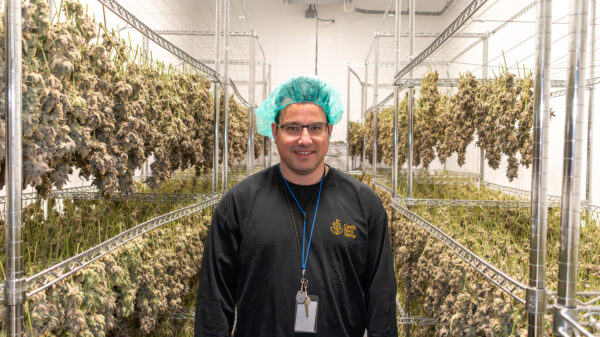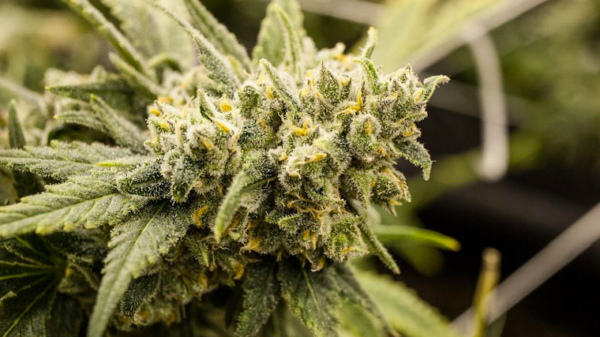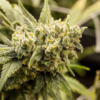The Canadian pot industry still has many hurdles to jump before it reaches the success of Colorado’s lucrative legal weed market, according to one expert.
If Ontario opened up hundreds of new pot stores, producers focused on price and quality, and governments dropped taxes and eventually relaxed rules, Canada would have cannabis sales closer to Colorado’s thriving market. That’s according to Michael Armstrong, an associate professor at the Goodman School of Business at Brock University, who has been following the Canadian industry closely since 2018.
With a population of 5.7 million, Colorado reported this week surging legal weed sales at a record US$1.75 billion ($2.3 billion) in 2019, up from US$1.55 billion ($2.05 billion) in 2018.

Brock University business professor Michael Armstrong has been paying close attention to Canada’s cannabis industry. Submitted photo
But despite all the hype surrounding Canada becoming the first G7 nation to legalize cannabis, the country of 37 million managed to record just $1.19 billion in legal sales last year, according to federal data released Friday.
Update, Feb. 24: The original article published on Feb. 22 compared legal cannabis spending in Colorado ($403.50) and Canada ($32.06) on a per capita basis for 2019. However, it is important to note that was the first full year of legalization in Canada compared to nearly the sixth year in Colorado. It would be more accurate to compare each jurisdiction’s per capita sales based on the first full year of legalization, which is $40 in Colorado and $24.50 in Canada.
“Colorado’s legalization approach follows more what I call a consumer goods model whereas Canada has gone with more what I call a pharmaceutical model,” Armstrong said.
Although recreational cannabis has been legal in Colorado since 2014, Armstrong said the industry was able to lure consumers from the illicit market almost right out the gate. That’s because underground growers and retailers were able to easier convert to legitimate businesses with lower licensing fees and looser regulations on product testing and packaging.
“Whereas our approach in Canada, the disadvantage was that the industry basically had to start almost from scratch,” Armstrong said.
Canadian licensed producers and retailers have had to invest millions to work within strict federal and provincial rules, he added. That includes meeting high standards for cleanliness, undergoing thorough inspections, product testings and taking major security measures.
Read more: Colorado’s tax revenues surpass more than US$1 billion

Graph courtesy of Colorado Department of Revenue
Price, quality key for Canadian industry in 2020: Armstrong
Despite the onerous regulations, Armstrong said Canada’s industry is starting to adapt and has mostly solved the supply issues that plagued the rollout in the first six to 12 months of legalization.
In year two, he said producers need to focus on lowering prices and raising product quality to attract more consumers to the legal side.
According to Statistics Canada, three-quarters of the country’s pot consumers cited quality as an important consideration when purchasing cannabis, while 42 per cent mainly considered price.
“Canada’s legal industry is already good for quality in the sense of safety,” Armstrong said. “The products are tested, there’s a solid sense of consistency. But what producers need to work on this year is the quality in the sense of pleasing the customer by giving them the aromas, the terpenes, the potency or whatever it is they are looking for.”
As for price, most companies are already reducing costs and producing at $1 a gram or less, and the first outdoor operators are producing at 15 cents to 25 cents a gram, he noted.
Hexo Corp’s (TSX: HEXO) Original Stash value product is a good example for others to follow, he said. The 28-gram bag is sold in Quebec and comes in at a retail price of $4.49 a gram.
“Every province and major producer needs at least some products value-priced under $5 per gram,” Armstrong said.
Read more: Illicit pot market now 44% cheaper than legal industry: StatsCan
Read more: Aleafia Health’s first outdoor crop produces cheapest cannabis in country

According to licensed producer Aphria Inc., its new Green Goddess packaging machine will reduce costs. Photo courtesy of Aphria Inc.
Steep Canadian pot taxes
Also, if the federal government dropped the minimum $1 a gram excise tax in favor of a 10 per cent rate that would further cut into Canada’s still-thriving illicit market, he added.
In Quebec, consumers pay 35 per cent taxes on a gram of weed, which includes federal and provincial sales taxes on top of the $1 minimum excise tax.
“If you got rid of that $1 dollar minimum and left all the other percentages the same, that $4.49 a gram Hexo product can drop to $3.39 so that’s a big deal.”
In Colorado, cannabis consumers face only a 15 per cent sales tax and a local or county tax rate that ranges from nothing to about five per cent. That formula appears to brings in more tax dollars because more legal weed is being purchased at lower rates.
According to Colorado’s department of revenue, US$1.24 billion ($1.64 billion) in cannabis tax revenue has been collected to government coffers in the last six years. In 2019, cannabis taxes came in at record US$303 million ($401 million).
The Canadian government has released data on cannabis tax revenue for the first year of legal sales. However, federal data says $186 million was collected in roughly the first six months of legalization on $320.1 million in sales.
Read more: Canada earns $186 million in cannabis taxes, but revenues lower than expected

Photo courtesy of Deposit Photos
More stores equal more money
More store openings — especially in Ontario — is also critical for Canada’s pot industry to cut into the illicit market, Armstrong said.
Ontario’s Ford government has taken a lot of grief from many cannabis companies for its slow store rollout. The province has fired back citing how the industry didn’t have products ready at first. Armstrong says both parties are at fault.
“The first nine months of legalization Ontario’s lack of stores you can blame on the industry, but since July 2019 onward the lack of stores is the fault of the provincial government,” he said.
He estimates the Alcohol and Gaming Commission of Ontario will need to issue at least 1,000 retail licences to properly address Canada’s largest weed market.
He said Ontario’s two retail lotteries to award 75 store licences in were both a failure. But the government’s recent announcement of opening up the market is a step towards fixing those mistakes.
The province said it received 700 applications for retail licences, and cannabis store licences will start to be issued beginning in April, at an initial rate of around 20 a month.
“I guess you can probably say Ontario’s approach is better late than never, but I am still concerned that their initial licence rate is not ambition enough at 20 a month,” Armstrong said.
In Colorado, 574 recreational cannabis store licences have been issued — or around one store for every 10,000 resident.
That’s a ratio that the Canadian industry would like to see across the country, which means all provinces and territories combined would need to add 3,000 stores from the roughly 780 open today. Alberta leads the way with 421.
Colorado has also allowed 440 medical cannabis stores to operate.
Armstrong said the state’s legal weed market has also benefited from tourism.
“Another factor when you look at Colorado’s sales figures is they’re a little legalized island in the prairie states, so they have benefited from tourists coming in on ski vacations and buying cannabis while they’re there,” he said.
According to Colombia Care Inc. (NEO: CCHW) — which recent acquisition gives it 23 Colorado stores — the state’s 85 million annual visitors help make it the second largest cannabis market in the world.

University business professor Michael Armstrong says packaging restrictions is one of the factors holding back Canada’s cannabis industry. Photo courtesy of Reddit user CHIEFxNUGZ
Canada needs to chill out on pot rules
Critics have said Canada has failed to bank on cannabis tourism because of the country’s tight regulations on advertising.
Armstrong says Ottawa and the provinces should look at relaxing the rules on marketing only after producers are able to come up with cheaper, better products on a regular basis.
He said if producers did that, and governments lowered taxes and allowed more stores to open, Canada would be able to capture more than half of the the country’s total $6 billion market for cannabis.
“After we get past the halfway point, we might need to see some of the restrictions on advertising loosened and more flexibility on strict licensing rules,” Armstrong said.
But that won’t be for another few years, he added.
Top photo courtesy of Reddit user CHIEFxNUGZ
jared@mugglehead.com
@JaredGnam














